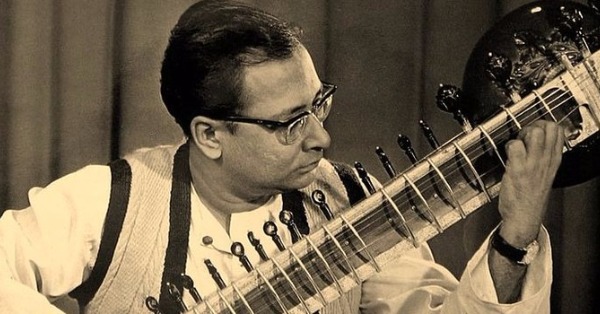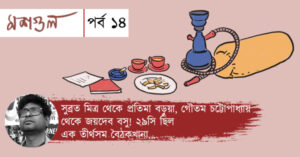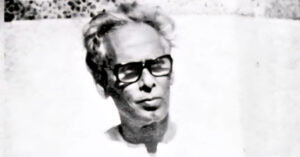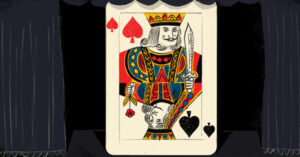Behind a mild-mannered disposition lay a ferocious heart ready to take on any force with the potency of his musical vision. What makes Pandit Nikhil Banerjee unique is that he crafted (even amidst the formidable presence of his legendary contemporaries) a style replete with all the good qualities hitherto seen in the art of sitar playing.
My first impressions with this great legend are blurred by how young I was and simultaneously spotlighted by how much I meditated upon his music. My father took me to him when I was all of 7 years old and had learnt to play 2 Tagore songs and one instrumental ‘gat’. He observed my right and left hands through his high powered glasses and left my father delighted with a promise that he would teach me in true guru-shishya parampara once I was a teenager ready to live in his house to be fed and clothed by him. Alas!! That was a promise never to be fulfilled… He left us very prematurely in his mid-fifties when I was only 9 years old.
I have since then, vicariously, tried to be his true shishya, living his vision through my father’s eyes and through the various cassettes which were miraculously bestowed upon us through various sources. I cannot talk about Nikhil ji without talking about my father. In him I have seen a burning urge to acquire the music, often counting tehais on his “S-14” bus-ride home. Those were not the days of voice notes or cellular phones.
Spontaneity was the hallmark of Nikhil Banerjee’s music. There wasn’t a phrase that sounded trite or premeditated. The uniqueness of classical music is the flexibility it affords within a framework which is somewhat rigid. The art is in discovering freshness in phrasing within set-out rules. Nikhil ji‘s approach, as with all great artistes, was to soul search in the moment. His approach to laya was equally in the “upaj” ang. The taans would often culminate in tehais which seemed to stem from within the taan. The vocabulary of khayaal and thumri gayaki found excellent presence in the modified and well-rounded tone of his sitar. His quest for originality, led him to use thicker string which would lead to greater sustenance of sound.
I look back at how I learnt several ragas…..my father would tell me “Dada would say this …dada would say that…” and I would spend hours in soliloquy having an imaginary conversation with the maestro at the risk of those around questioning my sanity…
Today Pt Nikhil Banerjee has left an indelible impression on the minds of so many sitar players. Anybody who wishes to achieve exuberance, lyricism, structural integrity, classicism, inclusiveness and authenticity at the same time, must treat his approach as an inescapable benchmark.
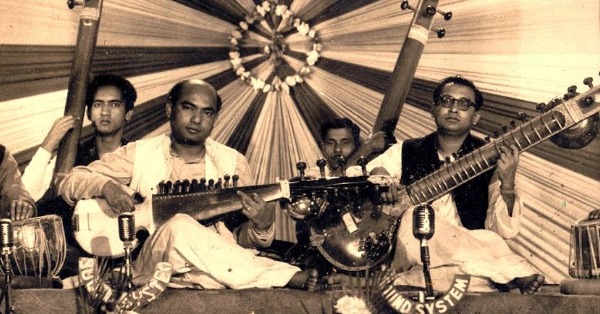
I cannot help speaking of a Marwa that Nikhil ji played in the Ali Akbar College of music, which, for me, became the haunting refrain beckoning me to this world of Hindustani music. Or a Khamaj he played in Amsterdam which showed me how one could make boundaries melt away and yet stay true to the raga… and there are so many more that me and my father have analysed and learnt from together. For me personally, Nikhil ji‘s music was a gateway into the vastly abstract brilliance of Ustad Ali Akbar Khansahib’s music, which at the time was a luminous blur. When I revisit Khansahib’s music or his duets with Nikhil ji, I re-live, in my imagination, the lives of these two great masters as they sculpted eternally relevant musical modes of expression. In their music they breathed the timelessness and vitality of the music of Bach, or Beethoven, or Miles Davies, or Chick Corea, or the Beatles or Kishore Kumar or Lata Mangeshkar. In our passage through time, we will traverse great music at every juncture, but there will be galaxies that shine bright from millions of light years away.
At a certain stage of my career, I knew I had to take flight on my own. That meant leaving home and learning how to walk and talk and walk the talk on my own. One person’s vocabulary, no matter how great, can never tell the story of another. I started looking for beacons which would show me my path. There comes this one day when you discover that you are in a place far from home, perched on a treetop with a better view of your own path. And yet, when you want to fly every time you cannot help but remember what it was that got your wings flapping in the first place.
